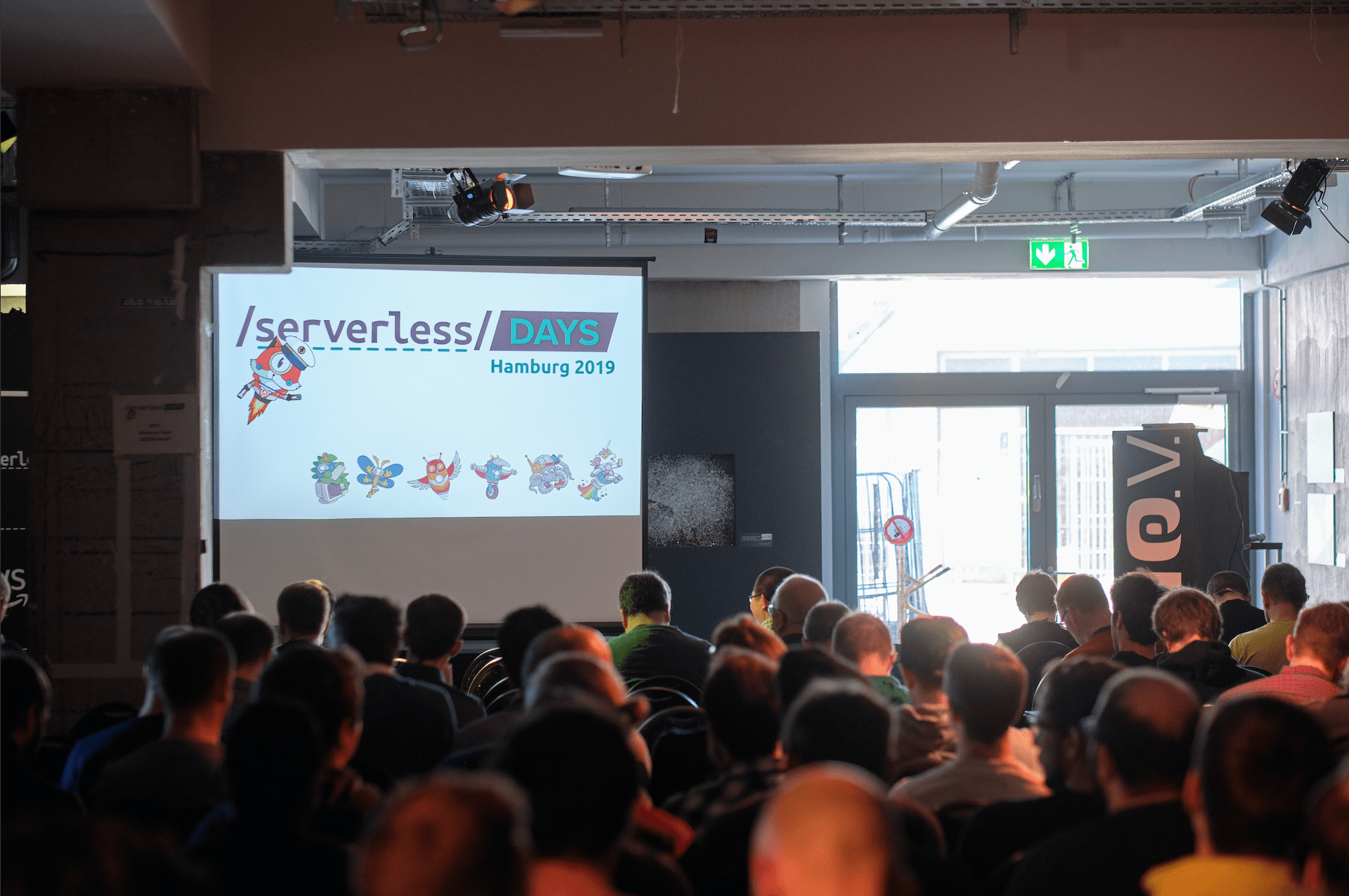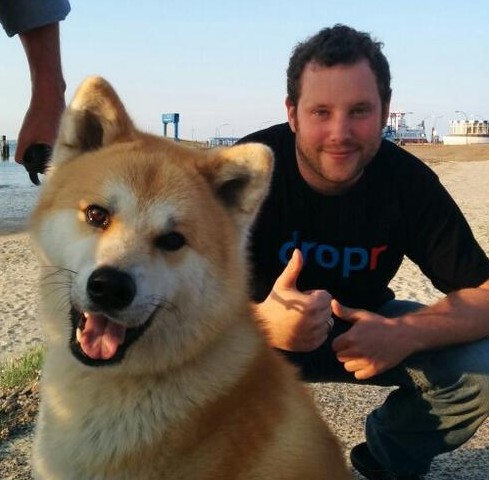ServerlessDays Hamburg Retrospective
April 1, 2019superluminar recently hosted the ServerlessDays Hamburg, formerly known as JeffConf Hamburg. ServerlessDays are a family of events around the world focused on fostering a community around serverless technologies.
The conference took place in the FC St. Pauli Museum, located in the famous Millerntor Stadium Hamburg. 230 people attended the (sunny!) conference day and 70 people the workshop day.
In this blog post we want to share some numbers, insights and learnings with you. Much of the feedback and insights come from the responses of the survey we did after the event (thanks for sharing your feedback!).

Team
First of all, a big thanks to our co-organizers and volunteers:
- Susanne Kaiser
- Ben Tisdall
- Teresa Holfeld
- Till Kahlbrock
- Boris Erdmann
- Hendric Ruesch
- Fabian Stehle
Call for Papers
We got 104 submissions, 12 of them were workshop proposals. Again we used papercall.io.
Regarding the content diversity by “Public cloud provider” we had the following distribution in the proposals:
- AWS 41
- Google 15
- Azure 10
- IBM 2
Gender diversity: we had 4 proposals (last year 0) handed in by women.
The CfP was fully anonymized. We used more or less the same approach as ServerlessDays London (thanks again Paul for writing it down): Soenke and Hendric were the “anonymizers” and we removed all information which could lead to a direct revelation of the submitter identity.
We built a Google Spreadsheet “system” so that each of the committee members (consisting of Susanne Kaiser, Ben Tisdall and Boris Erdmann) got their own spreadsheet copy to vote (so that they cannot see the votes of each other) and a “leader” spreadsheet which calculated the average of the votes.
Diversity
Speaker Diversity
Let’s do the math: 2 of 11 speakers were women. That’s ~20%. If we count in “non white dudes” to the group of people underrepresented in tech it would be 4 of 11 - which is ~35% - so in the end we have roughly the same number as last year.
Attendees and Diversity
We gave out 242 tickets in total. Through our diversity scholarship program we issued out 12 tickets to people of underrepresented groups in tech. We reached them through contacting local Women in Tech groups (e.g. Geekettes) and also universities.
This year we also offered to cover travel expenses and two people accepted this offer.
We estimate that 10% of our attendees were people from underrepresented groups in tech.
We got many applications from all over the world, but since we are a local community conference with a limited budget - and also since there are ServerlessDays around the world - we focussed on “regional” applications which means that we ignored applications from e.g. Asia or USA.
Learnings and ideas
- Next time we should definitely be more clear about our “area” so that people don’t apply when they have no chance to get selected anyway.
- 10% is still a very low number compared to other conferences which have e.g. 50% women. We keep experimenting to raise our numbers.
Inclusivity
Of course we have a Code of Conduct and we think we took it very serious again: We had a dedicated team (thanks Susanne and Till) taking care of any issues. In the end we got one minor issue reported (a comment at one specific slide of a talk) so we are somewhat confident everyone could enjoy the conference.
Talks / Agenda
Agenda
This year we had 11 talks (compared to 17 last year) and many more and longer breaks as a response to last years feedback. We think this was a better ratio, also we did not get any negative feedback regarding this topic this year.
This year, all presentations except the keynote were selected with a completely anonymised CfP.
Again we had some criticism of too much AWS content. But I think we got better this year: First, we had no AWS employee on stage, and second there was no “how do you do X with AWS” talks.
On the other hand it was perceived anyway that we had much AWS content. It seems that most serverless practitioners are currently on AWS, so they often use AWS services, icons, etc. to explain their architectures and challenges: the conference content somehow reflects the market. As a difference to last year: This year we had at least submissions from cloud practitioners other than AWS. But they did not make it through the selection.
Learnings/Ideas:
- We need much more time between the end of CfP and the announcement because of communication ping pong involved. We should aim for 4 weeks buffer (this time we had one week).
- We have to find a way to filter out talks with too much sales/self marketing beforehand. These talks could still be done, but maybe marked as “sponsored” or something like that. Talks coming from employees of vendors could be scanned beforehand for example.
- We are looking for ways to get even more practitioner content / experience reports.
- We are also thinking of doing different tracks for beginner / advanced content. We got the feedback that many talks were too basic.
- Regarding too much AWS content, we could ask the speakers to make their slides more generic, i.e. don’t refer to AWS services, but also mention other offerings, if possible.
Finding a good mix out of content, cloud providers and people diversity is hard, and this years experiment of selecting all talks through the CfP made us think if we go for a more mixed mode next year, with a combination of invited speakers and CfP. We are also thinking of reserved spots for local speakers and/or beginners/newbies. We could also think of “moving” more basic talks to the workshop day. That’s thought food for us.
Venue and Food
This year the location was the FC St. Pauli Museum, with catering done by the Catering Kontor.
We received very good feedback regarding the catering. BTW the food was completely vegan to vegetarian - and only one person out of 230 demanded meat! :D
Also this year the catering handled the lunch peak much better than last year.
Regarding the venue we got some feedback on how to do better next time:
- Have a separate, distinct sponsors area. This year the sponsors area was in the same room as the main talk hall so that we had some noise “leaking” from the sponsors area. This was not optimal for sponsors and we are of that.
- The location was very cozy and crowded with 230 people. Next time we need more space or better “management” of the “walk routes” :)
- The main conference room was perceived dark, which might also linked with the unusual sunny weather we had on that day.
One improvement to last year was the “bell of god”, so people know when to get in again. It’s amazing how people are conditioned to bells :)
Child care
This time we did an experiment with offering child care in cooperation with the Dom-Kita. The Dom-Kita is only open during the “DOM” (a local fun fair) seasons in Hamburg and usually dedicated to children of the show-(wo)men. So for them it was also an experiment to open outside of their usual season.
Initially we got 3 registrations for the child care, but then in the end we only had one child. At least she enjoyed the day with 2 dedicated child care workers :) Even if there was very little response to our offer, we are proud that we ran the experiment and we hope that more parents will bring their children next time. Also if you are looking for dedicated childcare for your events Hamburg, feel free to contact them.
Summary
We think ServerlessDays Hamburg 2019 was a great success, and we try to keep getting better. We had many new learnings which we will incorporate into the next event(s)! A special thanks to all attendees who took part in our survey and provided valuable feedback for us!

